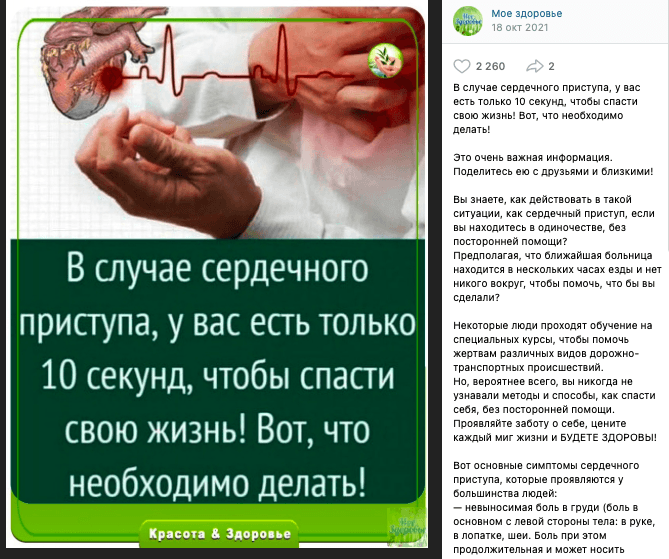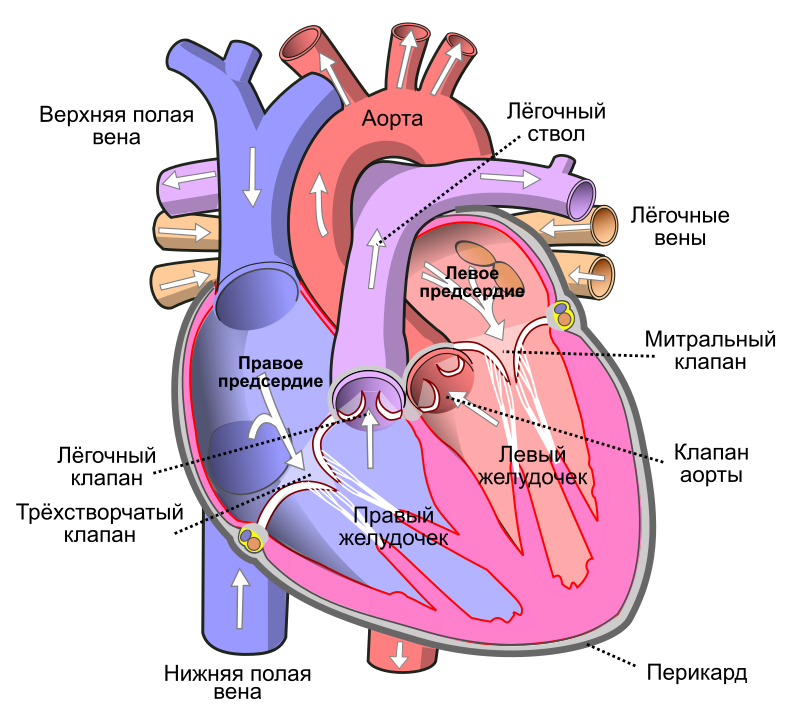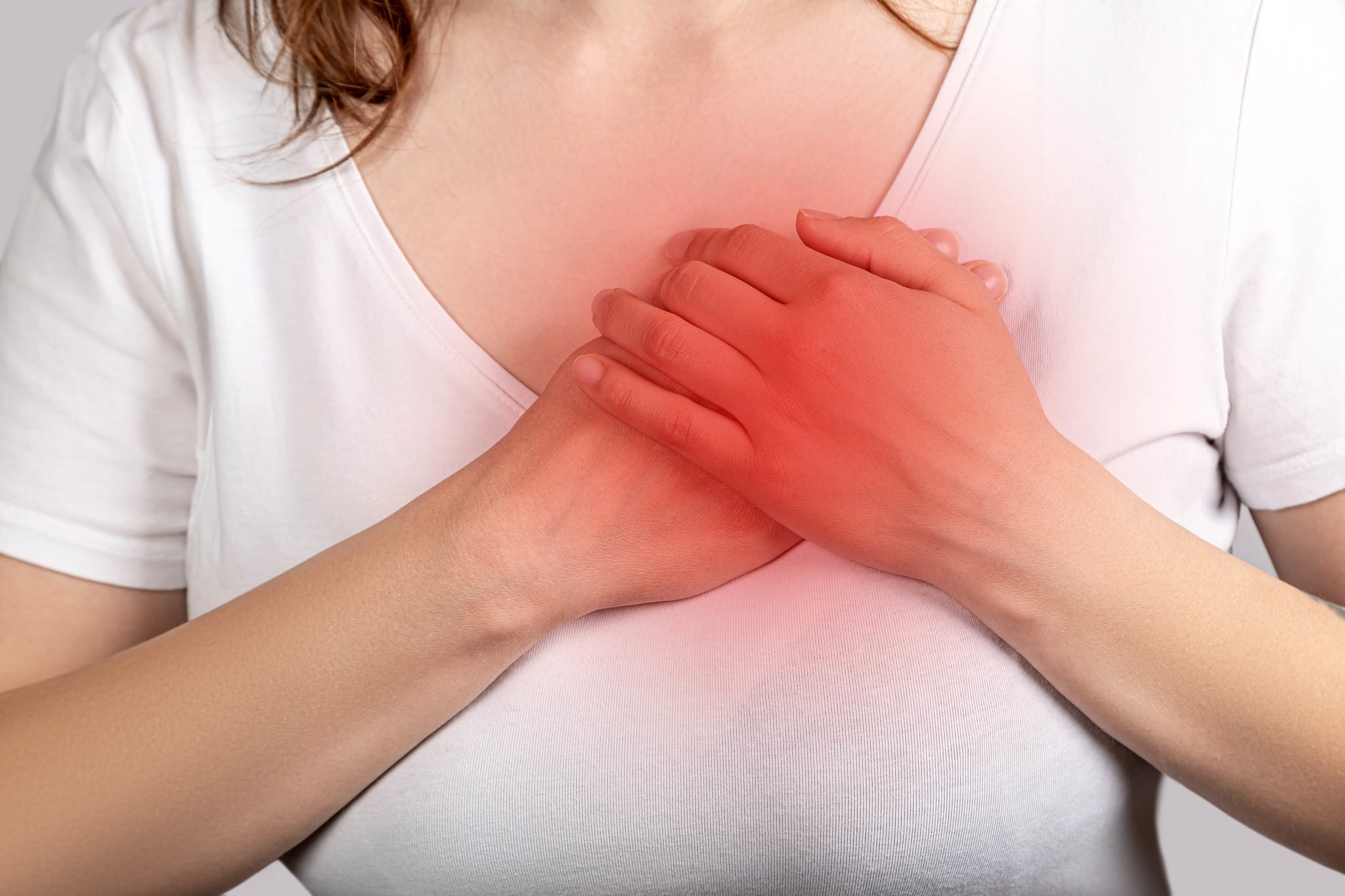Instructions are being circulated on social networks on how to help yourself at the first signs of a heart attack if the hospital is far away. To do this, it is proposed to learn a special cough technique. We decided to check whether there is scientific evidence of the effectiveness of this method.
Instructions under name “If you have a heart attack, you only have ten seconds.” actively spreads across social networks. It describes the technique of “correct coughing,” which supposedly can save lives during a heart attack if it is not possible to go to a medical facility. This instruction can also be found in the media: “Cough is a new remedy for a heart attack” ("Vesti.ru") or “Three rules for saving a life during a heart attack without drugs” ("Komsomolskaya Pravda").

In order to understand the described mechanism of action of the correct cough technique, you must first understand how the heart works. As we know from school biology lessons, heart is a hollow muscular organ that pumps blood. The cavity of the heart consists of two atria and two ventricles. The heart is supplied by blood vessels called coronary vessels. They are quite narrow and therefore susceptible atherosclerosis (deposition of cholesterol plaques) and stenosis (persistent narrowing of the lumen). Stenosis can lead to the development coronary heart disease (IHD). These pathologies are the most common causes myocardial infarction, among the people famous like a heart attack. Much less often, a heart attack occurs due to a sharp spasm of the coronary vessels. He, in turn, can provoke taking certain drugs or severe stress (Takotsubo syndrome, popularly known as broken heart syndrome). A heart attack can also occur due to bundles walls of the coronary arteries, but this pathology is observed relatively rarely.

Basic symptoms heart attack - pain or discomfort in the middle or left side of the chest; in some cases, a burning sensation or pressure may be felt in this area. The patient may also complain of shortness of breath, nausea, cold sweat, rapid heartbeat, weakness, dizziness and anxiety. However, sometimes the clinical picture may be different - the pain may be localized in other areas (for example, in stomach area) or absent altogether (the so-called silent heart attack).
First aid in case of a heart attack, call an ambulance, help the patient take a comfortable position, loosen tight clothing, give the necessary medications*, and in case of loss of consciousness and respiratory arrest, perform cardiopulmonary resuscitation (CPR). Traditional CPR consists of from compressions (pressure on the chest) and artificial respiration. However, in the case of providing assistance to a stranger and not having at hand special valve for artificial respiration, acceptable carry out compression only.
It is compression during CPR that should be replaced by a rhythmic cough. This technique suggested Tadeusz Petelenc, Polish cardiologist, employee of the Cardiology Clinic of the Silesian Medical University in Katowice. He taught 115 of his patients, who had previously lost consciousness due to heart problems, to cough according to a certain algorithm. As a specialist reported at a meeting of the European Heart Organization in 2003, in 365 cases when these volunteers thought they were about to faint, they used this technique. As a result, symptoms disappeared in 292 cases, and 73 patients required the help of medical specialists. Based on these data, the cardiologist concluded that coughing works and replaces CPR.
However, the Polish cardiologist’s study has significant methodological flaws. First, there was no control group, such as one that would randomly cough or perform any other actions. Secondly, no datathat in all 365 cases, Petelenets’ patients actually had a heart attack or had a pre-infarction arrhythmia. Mortality due to myocardial infarction amounts to on average 30%. And if you believe the data of the author of the method, the mortality rate when using cough was literally 0%. Overall mortality due to heart attack depends on the age of the patient (the cardiologist did not report anything about the age of his volunteers), the location of the injury (he also did not provide this data), as well as concomitant diseases (about which he also remained silent). Third, coughing cannot replace CPR or otherwise cause the heart to contract. It's quite easy to check. Chest compressions during CPR should be 5–6 cm in an adult. If you stand in front of a mirror and try to cough (just don’t overdo it), you can see whether the necessary compression of the chest occurs. Obviously not. Moreover, one of the main testimony to CPR is the absence of consciousness. It is logical that, having lost consciousness, you will no longer be able to cough. Moreover, the frequent breathing suggested in the instructions (every two seconds) will most likely lead to hyperventilation, which will initially cause dizziness and then loss of consciousness.
Various authoritative medical organizations categorically not recommended use this technique. Specialists note, that when carrying out some procedures (for example, cardiac catheterization) the doctor can indeed ask the patient to cough, but this only happens in a hospital, in the presence of medical personnel and under the supervision of ultrasound diagnostics. Coughing cannot work as a self-help method. American Heart Association does not support practice of coughing for CPR and notes that coughing, in principle, does not apply to forms of resuscitation. British Heart Foundation even asks do not spread this myth further, and inform those who post it that this technique is ineffective. Sergei Dzemeshkevich, chief researcher at the Russian Scientific Center for Surgery named after Academician B.V. Petrovsky, also warns from using the method: “Coughing intensely in such a situation is dangerous - in case of a heart attack, and even more so with a developing heart attack, any stress is dangerous.”
Thus, the newsletter about a special cough against heart attack is based on unverified data. And authoritative medical resources note that it is at least useless, and possibly even dangerous - because a person, instead of seeking qualified medical help as quickly as possible, will become carried away with self-medication or even harm his heart.
*“Checked” deliberately does not list medications, since, firstly, they must be prescribed to the patient by his attending physician, and secondly, for some of them there are a number of contraindications. You can view the recommended algorithm of actions to help with a heart attack on the website Mosgorzdrav in Russian or on the website of one of the largest medical and research centers in the world "Mayo Clinic"in English.
Cover image: Heart attack concept, woman suffering from chest pain by Marco Verchunder Creative Commons 2.0

Not true
Read on the topic:
If you find a spelling or grammatical error, please let us know by highlighting the error text and clicking Ctrl+Enter.






